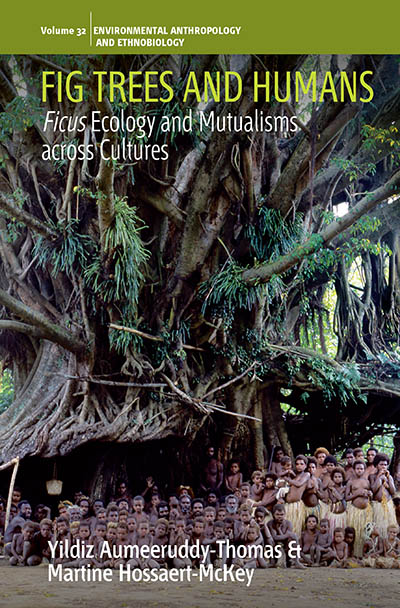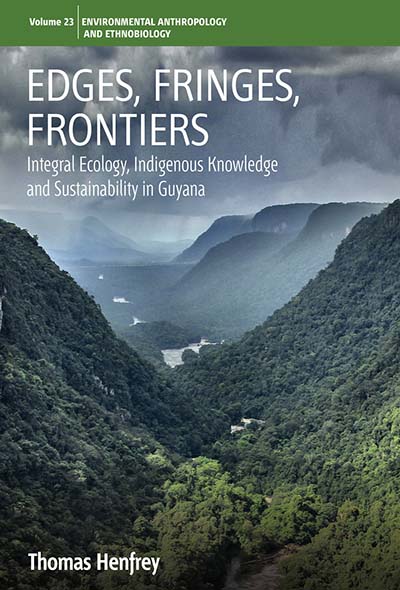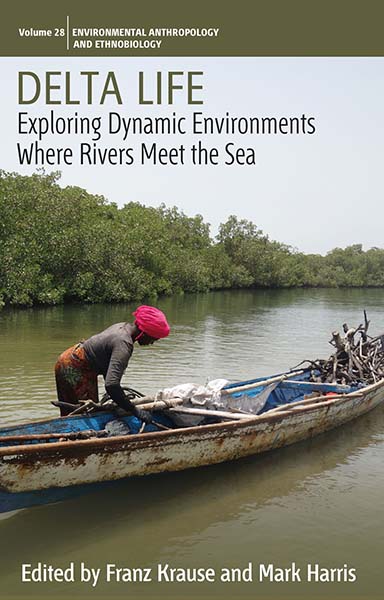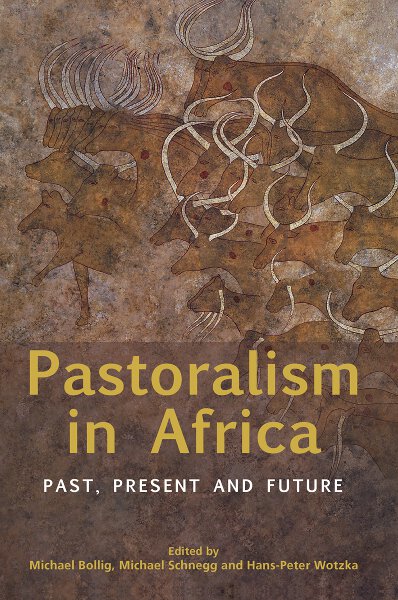
Series
Volume 32
Environmental Anthropology and Ethnobiology
See Related
Anthropology JournalsEmail Newsletters
Sign up for our email newsletters to get customized updates on new Berghahn publications.
Fig Trees and Humans
Ficus Ecology and Mutualisms across Cultures
Yildiz Aumeeruddy-Thomas and Martine Hossaert-McKey
Foreword by Roy Ellen
170 pages, 53 ills., bibliog., index
ISBN 978-1-80539-266-8 $120.00/£92.00 / Hb / Published (February 2024)
eISBN 978-1-80539-267-5 eBook
Reviews
“Very good for scholarly purposes … One of the aspects I particularly appreciated is the multiple perspectives regarding interactions, how humans have influenced the ecology of some Ficus species and how some Ficus species have influenced the structure of some human societies.” • Guillaume Odonne, French National Centre for Scientific Research
“It is a unique book in that there is nothing close or similar in precisely accomplishing the complex relation of figs (with humans) ... The significance of the relationship for humans is encapsulated very well through the book.” • Augusto Oyuela-Caycedo, University of Florida
Description
Humans and figs form hybrid communities within the context of anthropogenic landscapes, supported by biocultural mutualisms driven by traits of Ficus species and people’s imagination and practices, and where humans also positively influence Ficus species ecology. Fig Trees and Humans examines the interactions between the biology and ecology of the genus Ficus and how humans use and think of Ficus species across the tropics and in the Mediterranean region. It demonstrates a high level of convergence of material and symbolic uses of human-fig interactions that affect various aspects of human culture, as well as the ecology of wild or cultivated Ficus species.
Yildiz Aumeeruddy-Thomas is Director of Research at the Centre for Functional and Evolutionary Ecology (CEFE), CNRS, France. She coordinates interdisciplinary research that integrates anthropological and ecological studies.
Martine Hossaert-McKey, based at the CEFE, is currently the CNRS Director of SOLUBIOD, a long-term programme on Nature-Based Solutions funded by the French government.
Subject: Anthropology (General)Environmental Studies (General)
Area: Southern Europe
Contents
Download ToC (PDF)



